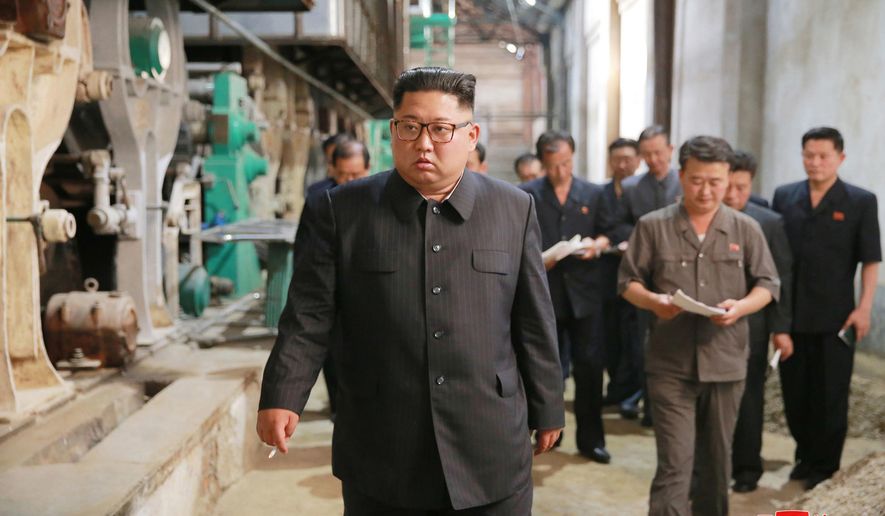
WASHINGTON (AP) - As Secretary of State Mike Pompeo prepares to travel this week to North Korea[1], experts cautioned that the Trump administration’s plan to dismantle the North’s nuclear weapons and missiles in a year is both unrealistic and risky.
The State Department said Pompeo would arrive Friday on his third visit to Pyongyang[2] in three months. It will be the first visit by a senior U.S. official since President Donald Trump[3]’s historic meeting with Kim Jong Un[4] on June 12 in Singapore, where the North Korean leader committed to “complete denuclearization” of the Korean Peninsula.
Trump[5]’s questionable claim afterward that the North was no longer a nuclear threat was soon displaced by doubts about how to achieve denuclearization, a goal that has eluded U.S. administrations for the past quarter-century since Pyongyang[6] began producing fissile material for bombs.
Less than three weeks ago, Pompeo said the United States wanted North Korea[7] to take “major” nuclear disarmament steps within the next two years - before the end of Trump[8]’s first term in January 2021. Even that was viewed as bullish by nonproliferation experts considering the scale of North Korea[9]’s weapons program and its history of evasion and reluctance to allow verification of disarmament agreements.
But on Sunday, Trump[10]’s national security adviser, John Bolton, publicized the more ambitious one-year plan that he said Pompeo will be discussing with the North Koreans. Bolton, who has expressed hard-line views on North Korea[11], said that if Pyongyang[12] has decided to give up its nuclear weapons program and is cooperative, then “we can move very quickly” and they can win sanctions relief and aid from South Korea and Japan.
The rapid timeline he proposed contrasts with more measured, methodical strategies that most North Korea[13] experts insist are needed to produce a lasting denuclearization agreement. They say any solid deal will require Kim[14] to be completely transparent about his program - at a time when intelligence reports suggest he will try to deceive the United States about the extent of his covert weapons or facilities.
The one-year plan is predicated on the North Koreans “rolling over and playing dead,” said Joel Wit, a former State Department official who helped negotiate a 1994 agreement that temporarily froze Pyongyang[15]’s nuclear program. “If it’s our going-in position, it’s fine. We should give it a try and see where it goes. If it’s our bottom line, it’s dead on arrival and then provides a pretext for John Bolton to make mischief.”
To date, Kim[16] has halted nuclear and missile tests and has destroyed tunnels at the North’s nuclear test site, but the authoritarian nation has yet to take concrete steps toward abandoning its weapons programs....

